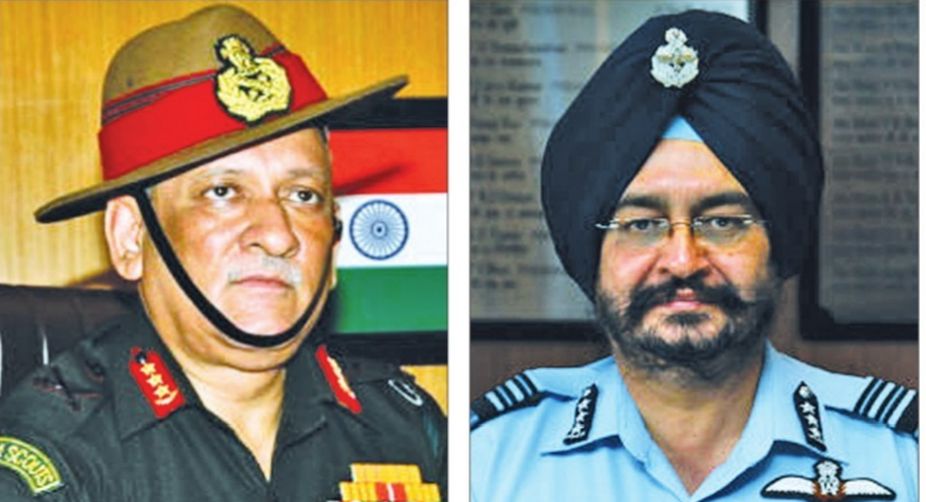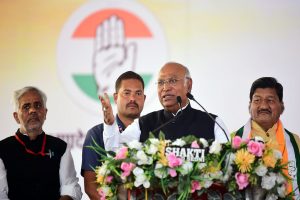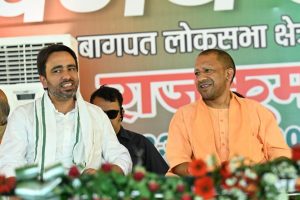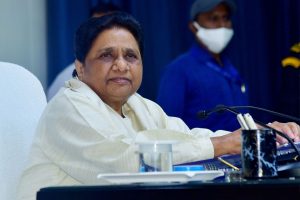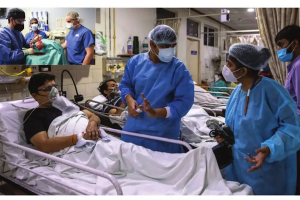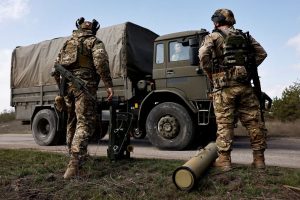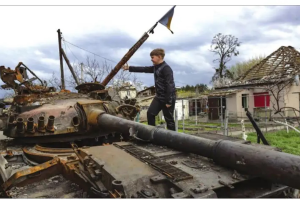The government recently announced new chiefs for the army and the air force. The announcement has limited impact on the nation and remains in the news for just a few days, as chiefs play no major role in decision-making as compared to other South Asian nations.
The appointment of the army chief would remain in the headlines for some time, as two seniors were superseded. Dwelling into the controversy concerning his appointment has no utility, as it is the government’s prerogative to select the chief which it has justifiably implemented. Both newly appointed chiefs would head the ultimate elements of power of the nation. They would guide their respective branches of the military through the next few years, while dealing with a variety of challenges. Any service chief on assuming his appointment sets for himself personal goals and an end state which he aims to achieve by the end of his tenure. These generally generate from his experience and interactions with members of his service. More importantly, he plans to guide his service to produce results which the nation expects. While he plays no direct role in operations, they are coordinated and planned at his level, while execution is done at lower levels.
The military has been in the headlines for many reasons in the recent past. Tensions on the borders, pay panel delays, OROP, operational shortfalls and administrative shortcomings are challenges for the two now assuming charge. Unlike Pakistan, where the chief changed the entire hierarchy and appointed his own people to push his agenda, in India, the chief has limited space for similar action.
Changes can only occur when an individual completes his tenure and even then only with the approval of the Cabinet Committee on Appointments (CCA). Hence, his role is more of a mentor, administrator, coordinator and resource provider. He operates at the national strategic level while operations are handled by lower level commanders. In this context, there are immense challenges facing both the chiefs as they occupy the hot seats.
Operationally, India faces increasing threats on two fronts. A belligerent China increases its presence in areas of India’s interest and provides open support to Pakistan to continue with its anti-India terror groups. Indo-China standoffs are becoming more frequent and hostile. Kashmir remains an area of concern as the army suffered maximum losses of soldiers this year in both militant attacks as also cross-border firing. Militancy and increased ceasefire violations imply the need for an alert military, prepared to retaliate with force. Shortfalls in weaponry and serviceability of equipment continue to hamper operational preparedness of the forces, in case of an open conflict on either front. These would always be priority areas for the chiefs to handle.
Administratively there are shortfalls in all essential equipment, stretching from bullet-proof jackets to combat boots. This reduces the efficiency of the military in operations and even training. Delays in acquisition and procurement have an adverse effect when facing emerging challenges. Pursuing pending cases and ensuring timely procurement remains a challenge. Both the newly appointed chiefs were vice chiefs prior to their elevation and hence are aware of the pitfalls in the system.
Modernisation of the force is a constant worry. To be able to battle two fronts the nation needs a modern military with adequate reserves of equipment and spares. Modernization in the last decade has been slow and tardy. While deals are presently being signed, the procurement process remains slow. Planning a military for 2025 and expecting to thwart enemy designs in 2017 or 2018 is illogical. Constant interaction and pressure on the defence ministry is essential for speeding up the process.
The pay commission headed by Justice Mathur in one sweep broke the limited trust which existed between the military and the bureaucracy. It caused a divide which would harm the nation in the years ahead. Re-establishing the bond and breaking the distrust should be a priority. In a similar vein, the delay in implementing the pay commission recommendations has increased the divide between the officers and the men.
The impression across the rank and file is that most pending issues only pertain to the officer level; however their case has also been held up. The chiefs would now have to push the government to ensure early release of the same or convince the rank and file that it is for the future and general good of the military. The other discrepancies of recent times, including the disability pensions, allowances and status of civil and military officers in service HQs also needs to be addressed on priority basis. Ignoring the issue or letting it linger affects morale at every level. While most cases remain with the anomalies commission, a faster redressal of these grievances and an early release would only place both new chiefs on a stronger platform.
OROP is also an issue where the service chiefs need to be directly involved. Every serving personnel is a future veteran. With limited job opportunities and early retirement, most veterans only have their pensions to survive on. A half-hearted OROP, implemented in haste and the Reddy commission report yet to see the light of day have ensured that morale at the veteran level is low. This impacts the military as those serving visualize a similar bleak future for themselves. The chiefs therefore need to interact with veterans at regular intervals, assuring them of their support as also requesting the government to consider early resolution of pending anomalies. The chief is like a demi-god within his service.
The military needs equipment and stores to be able to battle threats. Those in service and the veterans look up to him with the hope that he will resolve their problems. The government may be aware but is rarely in a hurry. Morale at every level is dependent on resolution of problems. The new chiefs have a lot on their hands as they occupy the top offices.
(The writer is a Retired Major General of the Indian Army)

